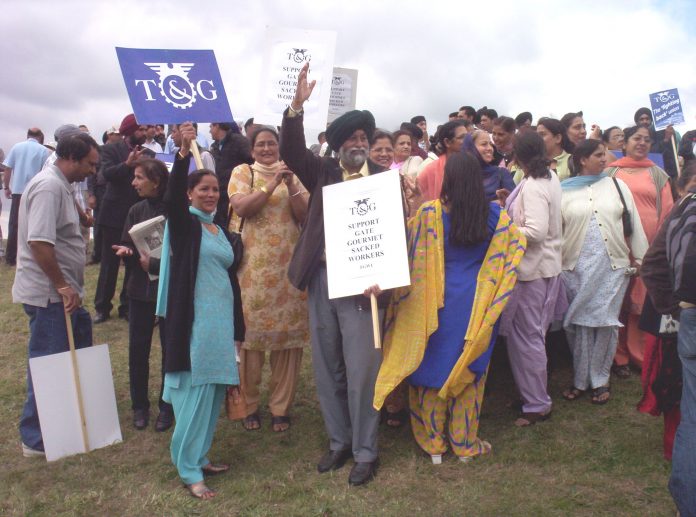Four men were yesterday remanded in custody to appear on criminal charges at the Old Bailey on November 14th, in connection with the July 21st bomb scares in London.
They were whisked into the Belmarsh Magistrates Court, south London, in a fleet of armoured vehicles bringing them from Paddington Green high security police station. Armed police guarded the court.
Three of the men, Yassin Hassan Omar, 24, Ramzi Mohamed, 23, and Ibrahim Muktar Said, 27, were charged with attempted murder, conspiracy to murder, and possession of explosives with intent to endanger life and property.
Omar and Mohamed were charged in connection with the Warren Street and Oval incidents respectively.
Said was charged in connection with the Hackney bus incident.
A fourth, Manfo Kwaku Asiedu, 32, was charged with conspiracy to murder and possession of explosives in connection with an unexploded device found at Little Wormwood Scrubs park on 23rd July.
Three other men – Siraj Yassin Abdullah Ali, Wharbi Mohammed and Asias Girma – also appeared before the court and were remanded until 11 August, when they will appear before Bow Street magistrates in central London.
Ali is accused of failing to disclose information about Ibrahim Muktar Said and Yassin Omar and assisting Said in evading arrest.
Wharbi Mohammed is accused of failing to disclose information about Ramzi Mohamed and assisting Ramzi in evading arrest.
Asias Girma, 20, is accused of failing to disclose information about a terrorist.
A fourth suspect, Osman Hussain, also known as Hamdi Isaac, who is alleged to have attempted to cause an explosion at Shepherd’s Bush Underground station, is currently in custody in Italy facing a British extradition attempt.
Meanwhile, the Foreign Office yesterday issued warnings over more terror attacks in Saudi Arabia.
Revising travel advice for UK citizens, a notice on the Foreign Office website warned of ‘credible reports that terrorists are planning further attacks in the near future’, adding it believed ‘terrorists are planning further attacks, including against Westerners and places associated with Westerners in Saudi Arabia.’
Non-essential staff and dependents at UK missions in Saudi Arabia have been told to leave if they wish.
The British move followed a decision by the United States to close its embassy and diplomatic missions in the Middle East oil kingdom, due to threats against US government buildings.
The warning was the second in two weeks. On 25 July, the US embassy said militants were probably planning new attacks in the country.
Australia’s Department of Foreign Affairs and Trade also warned Australians not to travel to Saudi Arabia, while its nationals were urged to depart or exercise extreme caution.
Oil prices shot up to $62.69 in Asian trading on news of the Saudi situation, and millions of dollars were wiped off Wall Street share prices as the Dow Jones index of industrial shares fell over 53 points.
After touching new highs, light crude prices fell back slightly to $62.51. Nevertheless, prices were still trading 20 cents higher than Friday’s closing mark of $62.31, itself a 22 year record.
The latest government figures showed oil prices have had a devastating effect on production costs in the UK.
Raw material costs rose at their fastest annual rate in 20 years in July, according to figures from the Office for National Statistics (ONS).
Producer input prices rose 1.8 per cent between June and July, giving an annual increase of 13.4 per cent.
The ONS said the rising cost of oil was the main factor in the price hike.
Prices of goods leaving UK factory gates rose 0.7 per cent in July, the ONS added.
This brought the annual rate of factory gate inflation to 3.0 per cent, up from 2.5 per cent in June and above the 2.4 per cent predicted by City analysts.
• Second news story
KOIZUMI CALLS SNAP ELECTION
Japanese Prime Minister Junichiro Koizumi yesterday dissolved the Lower House of parliament and called an early election for 11 September.
The move followed the defeat in the Upper House of his controversial plans to privatise Japan’s postal system.
The vote was a huge blow to Koizumi, who had staked his reputation on the issue.
The privatisation would have transformed Japan Post, with its $3 trillion assets, into the world’s largest bank.
The defeat of the postal post privatisation bill by 125 votes to 108, also revealed deep divisions within the ruling Liberal Democratic Party, with 22 members voting against the measure.
Fears that the election will be close run saw Agriculture Minister Yoshinobu Shimamura announce his resignation at yesterday’s cabinet meeting, saying he was not the only minister to oppose the decision to call an election.
Those LDP members who voted against the postal bill were angry that Koizumi called an election, rather than offer his resignation.
‘There is no justification. It’s like suicide bombing,’ LDP MP Housei Norota said.
